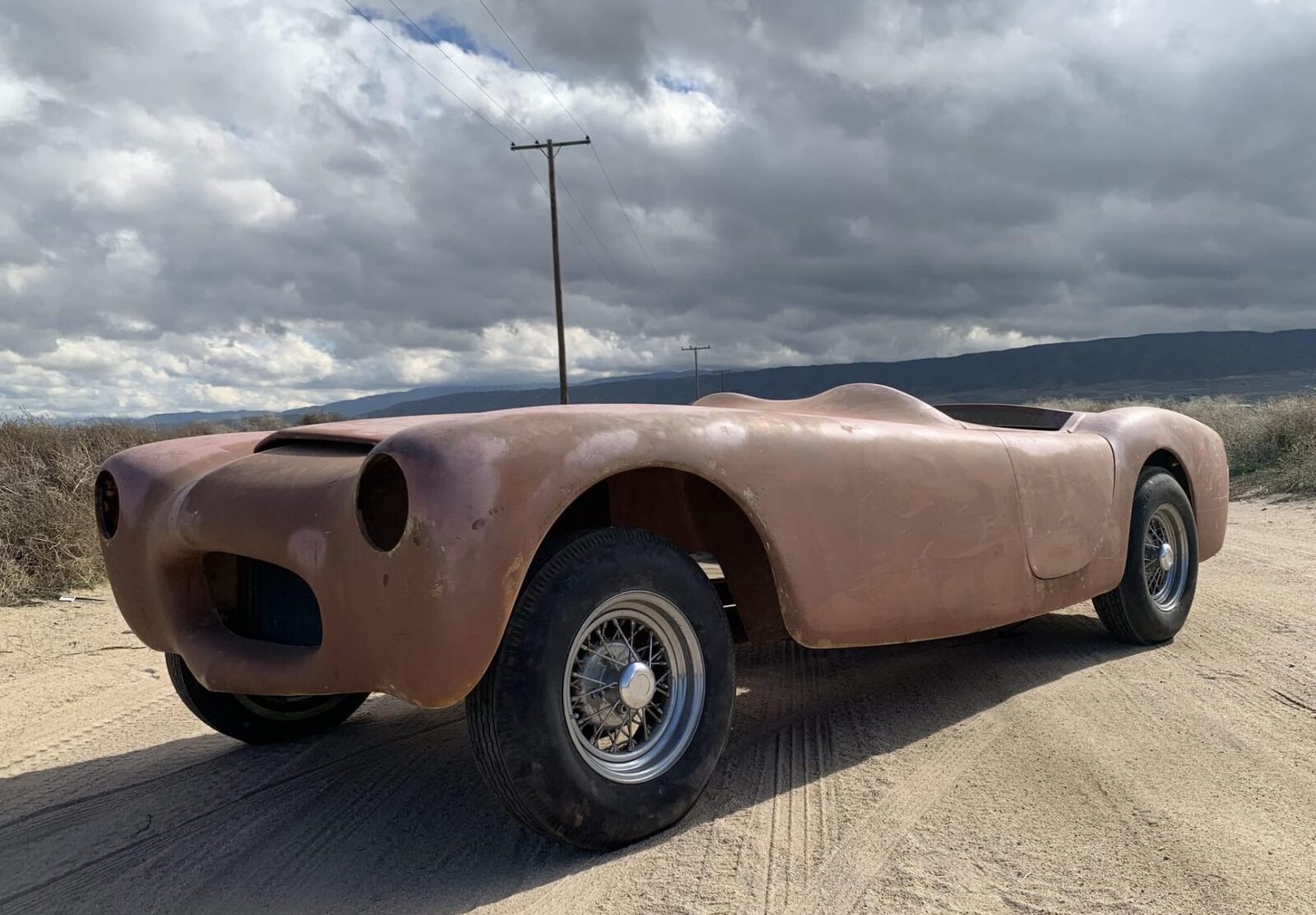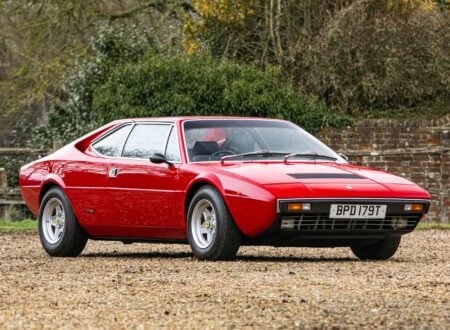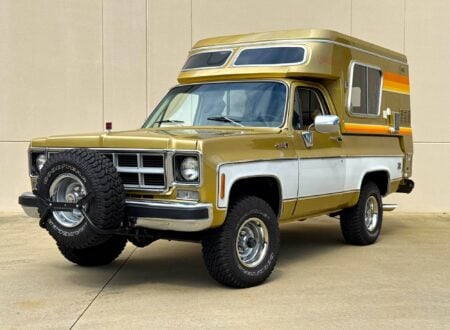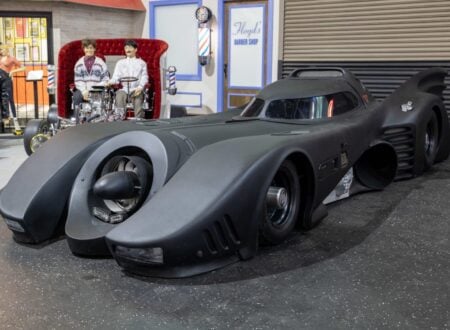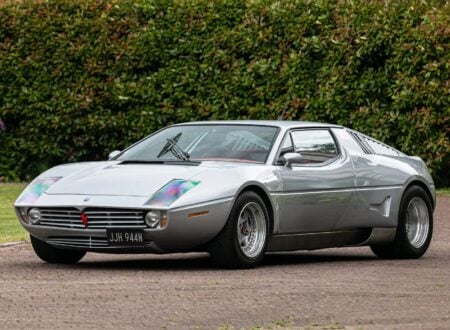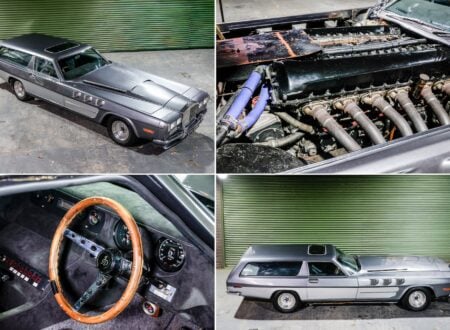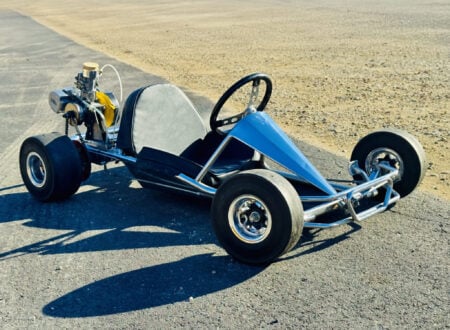This is a Woodill Wildfire project car, it’s a little-known American sports car that debuted in 1952 and is claimed by some to be the first complete fiberglass production car.
The early 1950s were a time when the popularity of fiberglass skyrocketed in the United States, both for boats and automobiles. Fiberglass was the carbon fiber of its day, a lightweight, strong composite that could be formed into complex structures quickly using moulds.
Fast Facts – The Woodill Wildfire
- The Woodill Wildfire was the creation of Blanchard Robert “Woody” Woodill, a successful Willys and Dodge dealer in California. He had originally been planning to buy a Jaguar XK120 but one of his mechanics talked him out of it, and Woodill decided to instead build his own sports car on a Willys chassis.
- Woodill sourced a fiberglass body from Bill Tritt at Glasspar, a critically important early manufacturer of fiberglass bodies that could be bought as kits and installed onto production car chassis.
- Once completed, Woodill’s car was showcased at the Petersen Motorama where it generated a groundswell of interest. Willys became interested in the car, as it was based on a Willys production car chassis, and they very nearly put it into production as the Willys Wildfire.
- Ultimately production would occur under the Woodill name, running from 1952 to 1958 in Downey, California. The company offered both kits and complete turnkey cars, with almost 300 units sold in total. Far fewer than this number have survived to the modern day, and they’re now becoming highly desirable in the eyes of many collectors.
- The car you see here is said to have been built from one of these 1950s-era fiberglass body kits. It remained in unassembled kit form for decades before being fitted to a body around the year 2009. It’s now being sold out of Quartz Hill, California requiring completion.
The Incredible Story Of The Woodill Wildfire
The story behind the Woodill Wildfire would make for a compelling Netflix miniseries. It involves a plucky entrepreneur with a big idea, a major American automaker, a corporate takeover, a sleek sports car, and eventually, a plan to beat the odds by launching a new low-volume automaker.
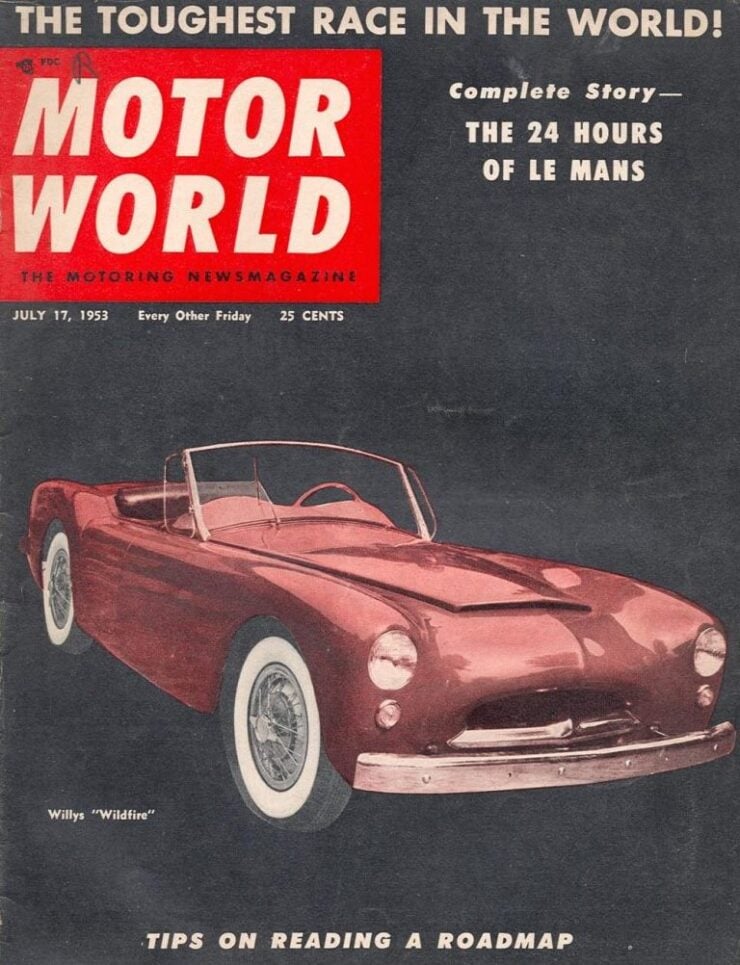

The project to build the Woodill Wildfire started in the early 1950s when successful Willys and Dodge dealership owner Blanchard Robert “Woody” Woodill decided to buy himself a Jaguar XK120 sports car to celebrate the ongoing success of his business. It was one of the fastest road cars in the world at the time, and XK120s were driven by the biggest movie stars of the era including Clark Gable, Gary Cooper, and Humphrey Bogart.
Woodill got talking to one of his mechanics about the car and was quickly talked out of it, with tales of high maintenance costs. Whether true or not, it was enough to turn his head, and he started looking for alternative sports cars.
Exactly how he found out about Bill Tritt of Glasspar and his state-of-the-art (for the time) fiberglass sports car bodies isn’t known, but we do know the two men got to talking, and Woodill bought two complete bodies. He then set out, along with mechanics from his dealership, to build two complete cars based on Willys production car chassis, using mostly Willys components.
Thanks to the fact the cars were being built by professionals in a commercial garage, the fit and finish on the two cars was exemplary. Woodill’s plan had been to build two cars and then sell one of them to pay for the other, resulting in what was essentially a free sports car.
He sent his own personal car to the Petersen Motorama, a major California car show, and it was hugely popular. America at this time was starved for homegrown sports cars, and Woodill’s Glasspar-bodied creation was exactly what the people wanted.
This positive reaction didn’t go unnoticed by Willys-Overland, who paid for the car and for Woodill himself to visit their headquarters so it could be inspected in closer detail. They were impressed, impressed enough to begin talks about building an official production run of Willys Wildfires.
It was around this time that Willys-Overland was in talks with Kaiser-Frazer about being acquired, and interestingly enough Kaiser-Frazer had been working on their own fiberglass-bodied sports car, the Kaiser Darrin.
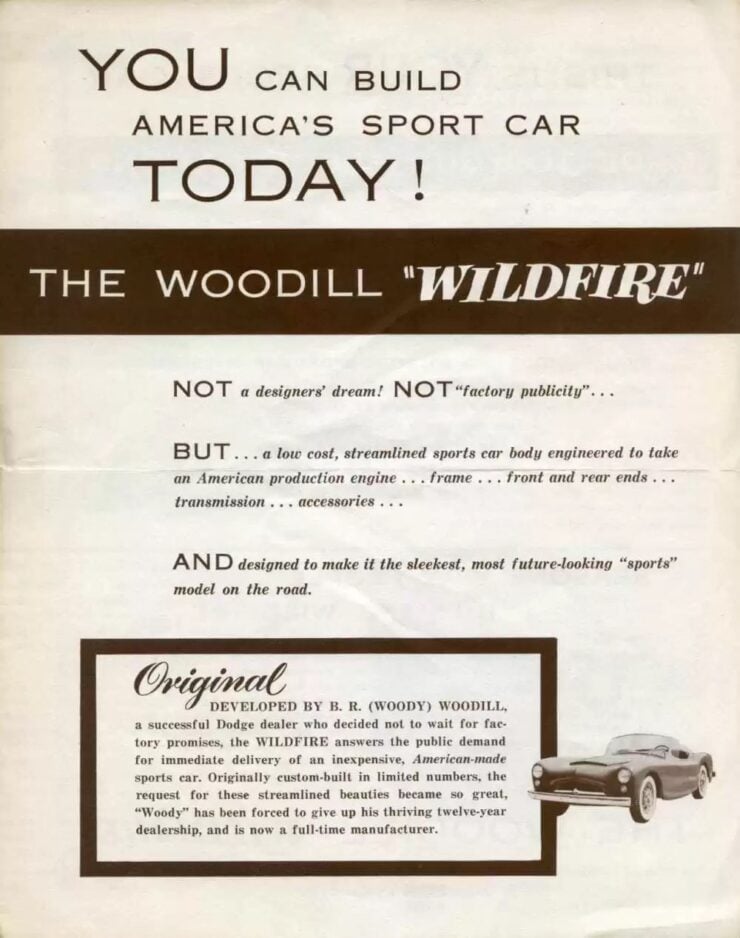

In early 1953 the Woodill was featured in Time magazine, one of the largest magazines in the world at the time. It was a major publicity coup, but perhaps not well timed, as Mr Woodill was quoted as saying that the new car would be available to buy soon from Willys dealers as the Willys Wildfire.
Due to the impending acquisition, and the fact that Kaiser was working on their own fiberglass sports car, this unapproved announcement from Woodill was not welcomed at Willys, and the project was cancelled shortly thereafter.
Never one to let this sort of thing get him down, he set about manufacturing the sports car himself. It would be offered in body-only form, as a kit car, or as a complete turnkey sports car ready to drive. In total, approximately 300 would be made from 1952 until 1958 – a high production number for such a small manufacturer.
Relatively few of these original cars remain today, we’ve written about some of them previously on Silodrome, and they were often finished with a variety of chassis and engines depending on who was building them.
The Woodill Wildfire Project Car Shown Here
The car you see here is an unfinished Woodill Wildfire that was apparently bought as a body kit originally, then left in storage for decades until a new owner put it on a rolling chassis in the year 2009.
The vehicle requires finishing, which will involve plenty of work and the fitment of an engine and transmission – preferably something period correct. As it sits currently the car has a body, chassis, rack and pinion steering, independent front suspension on coils with a live axle on leaf springs in the rear, and drum brakes on all four corners.
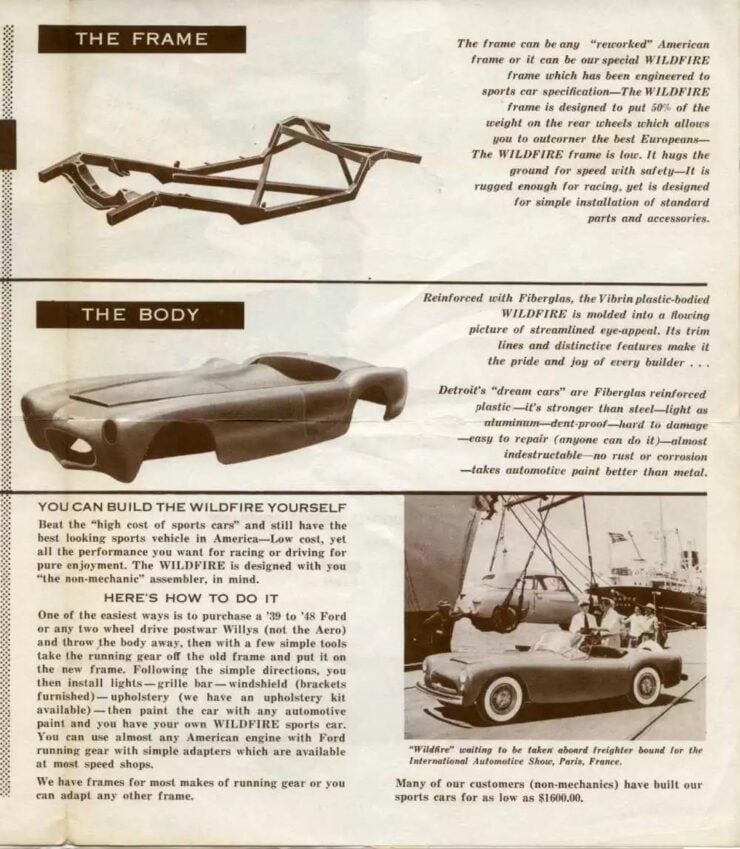

At some point plywood floors, a plywood bulkhead, and a radiator have all been fitted. It’s clear that the lion’s share of the work still remains and the body would ideally need to be removed and the chassis tidied up before the car progressed any further.
If you’d like to see more about this unusual American sports car or take it on as your next project you can visit the listing on Bring a Trailer here. It’s being offered for sale out of Quartz Hill, California at no reserve with uninstalled parts and a bill of sale.
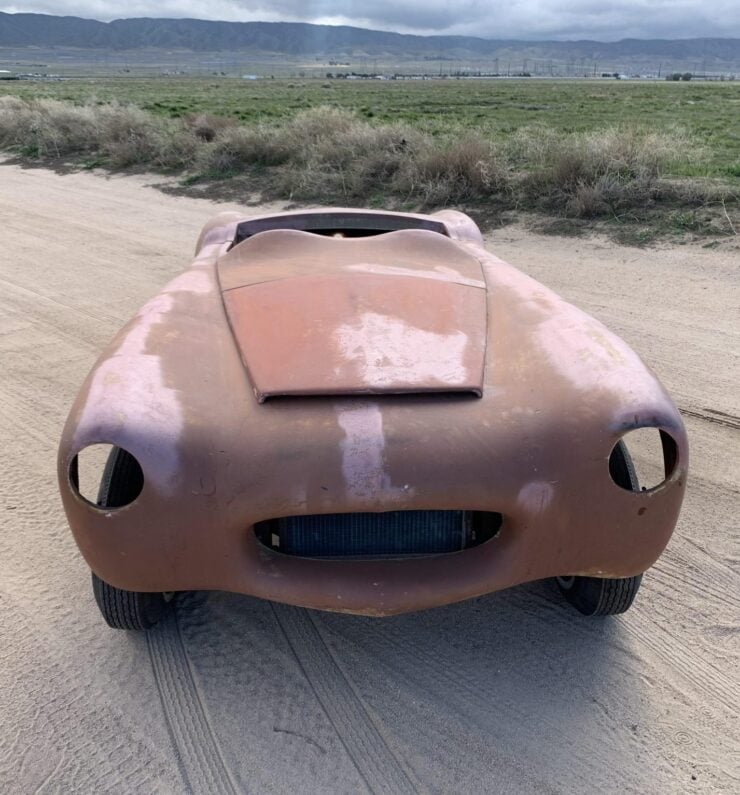
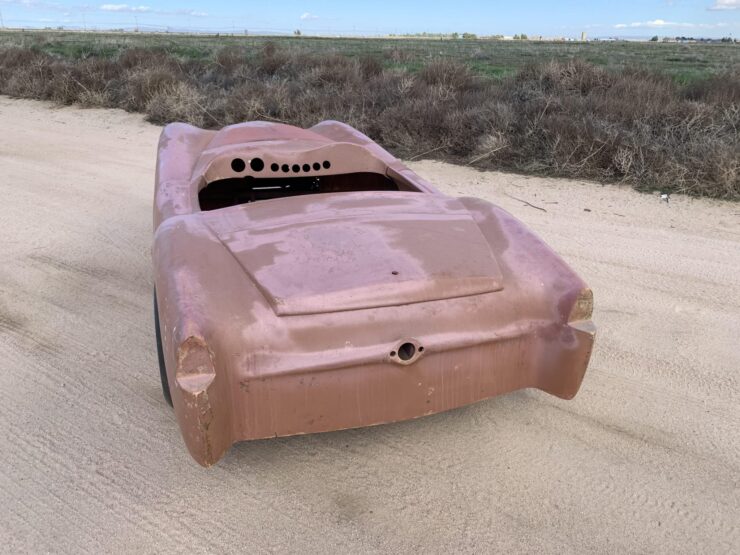
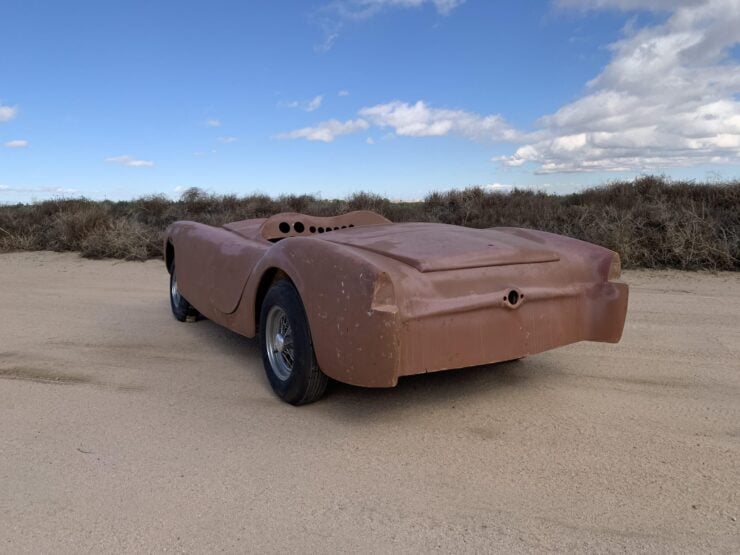
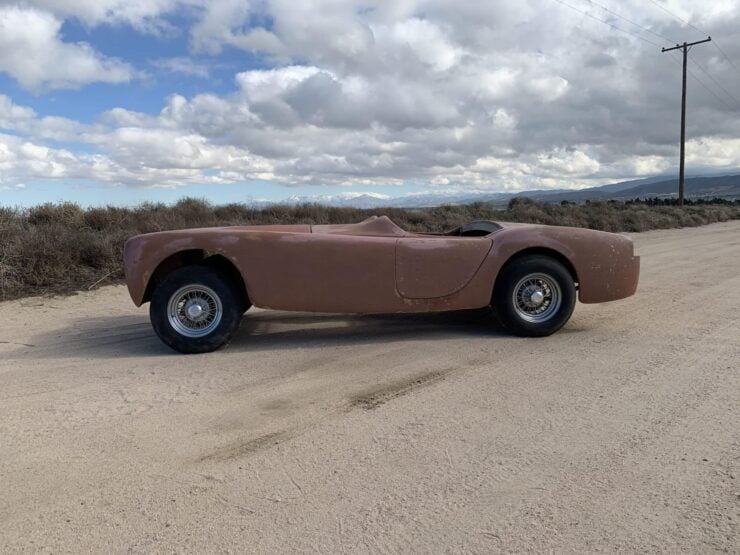
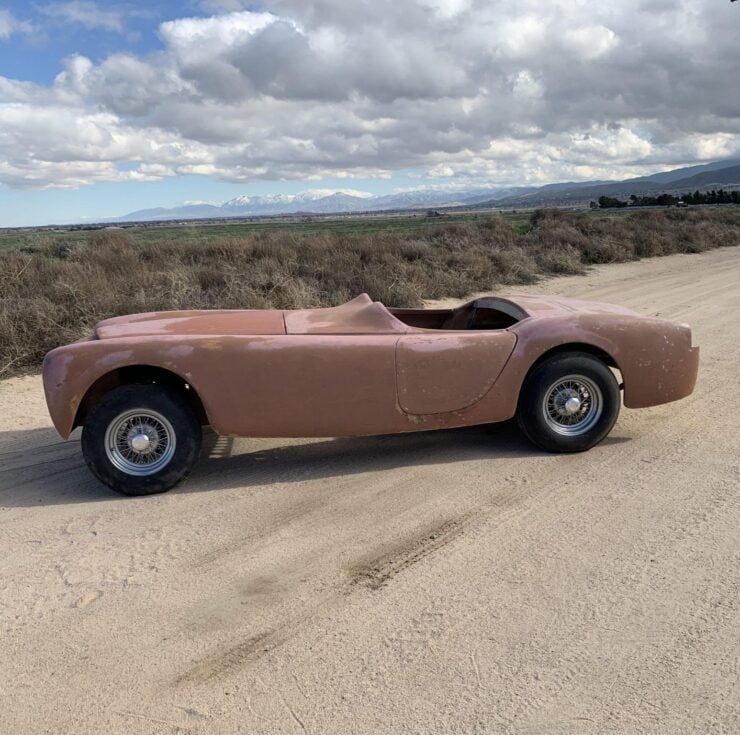
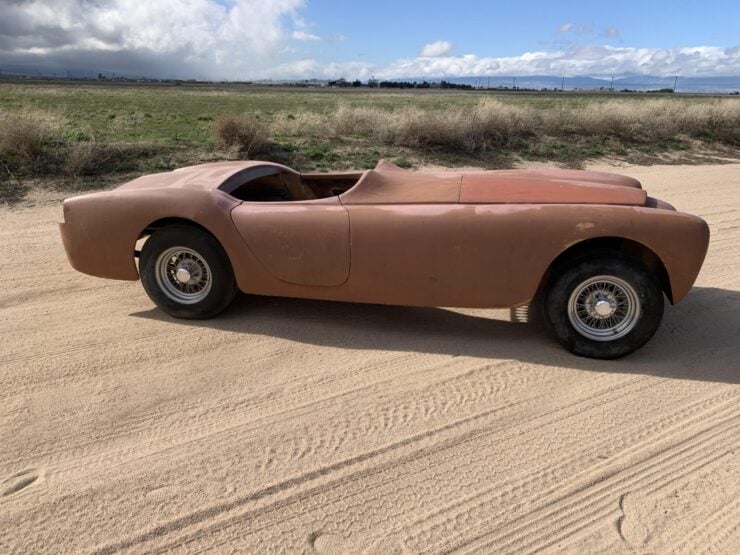
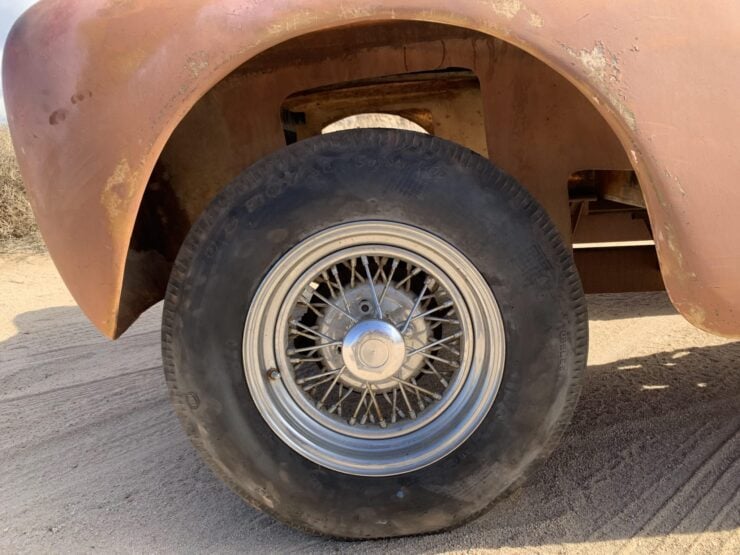
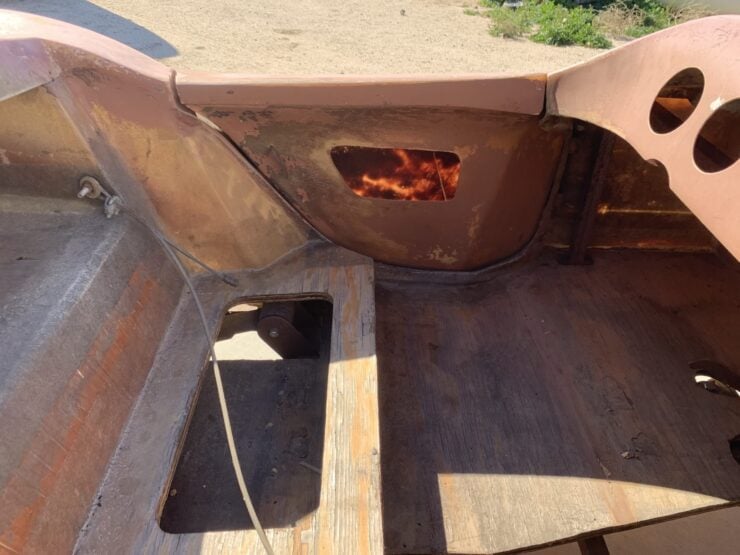
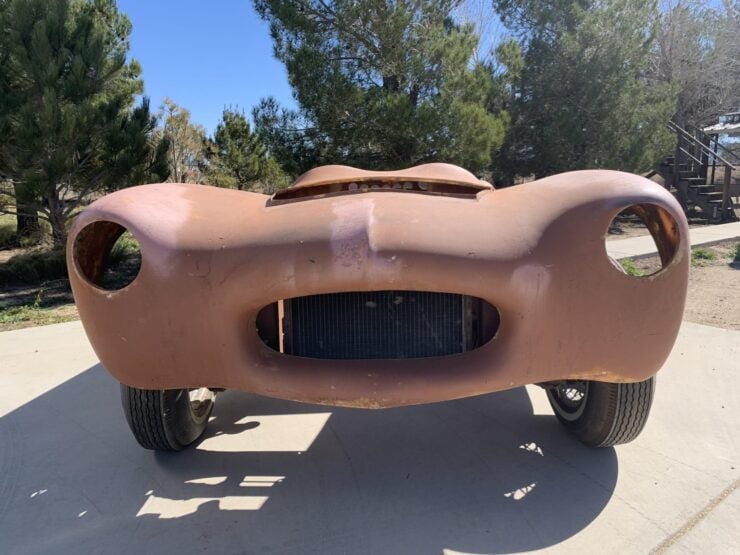
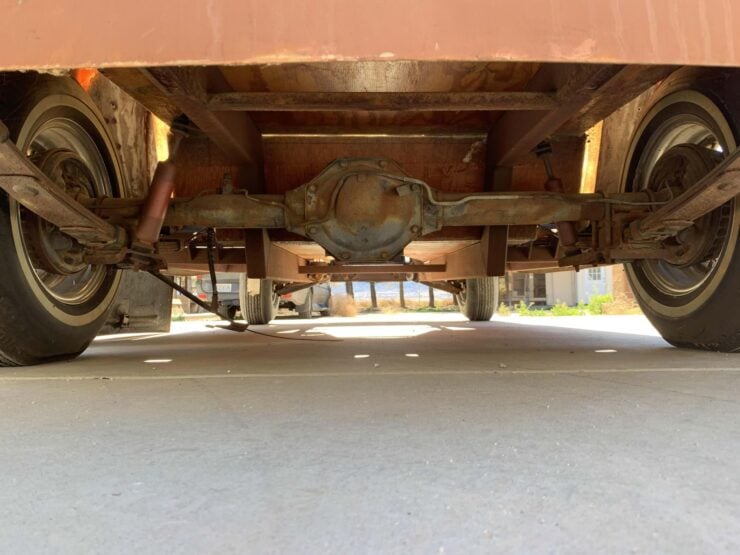
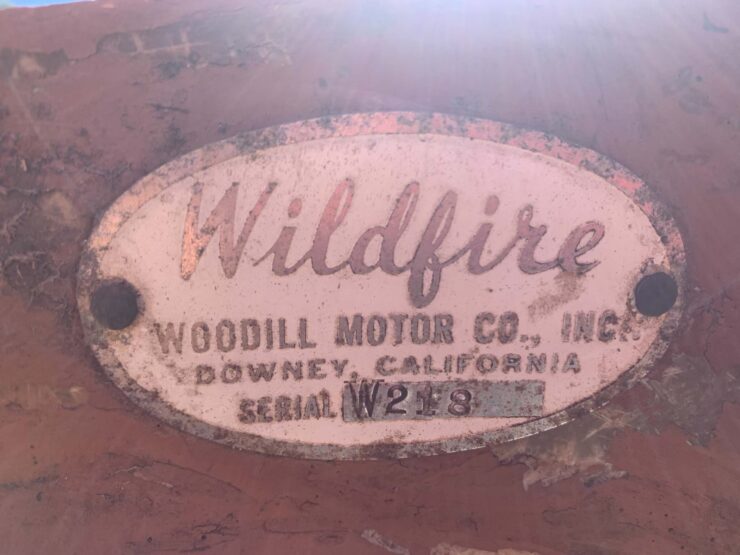
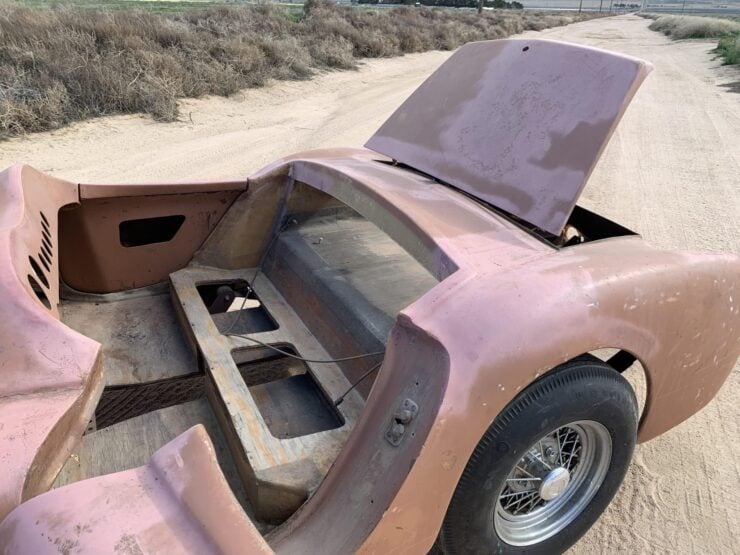
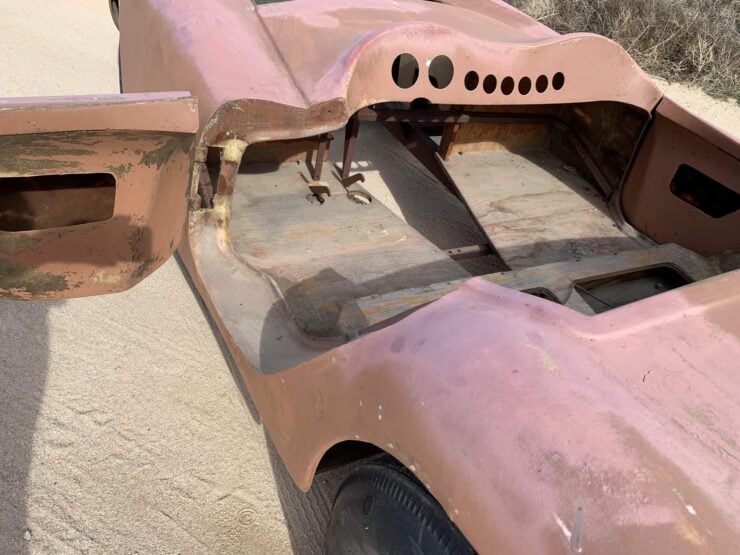
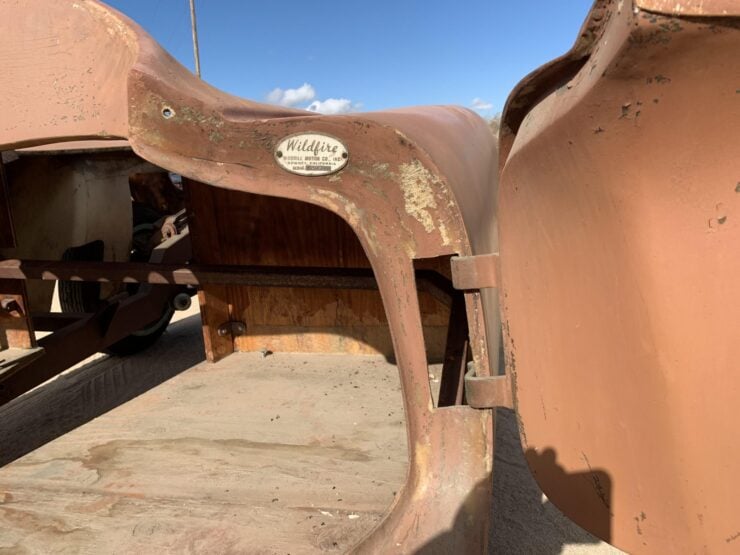
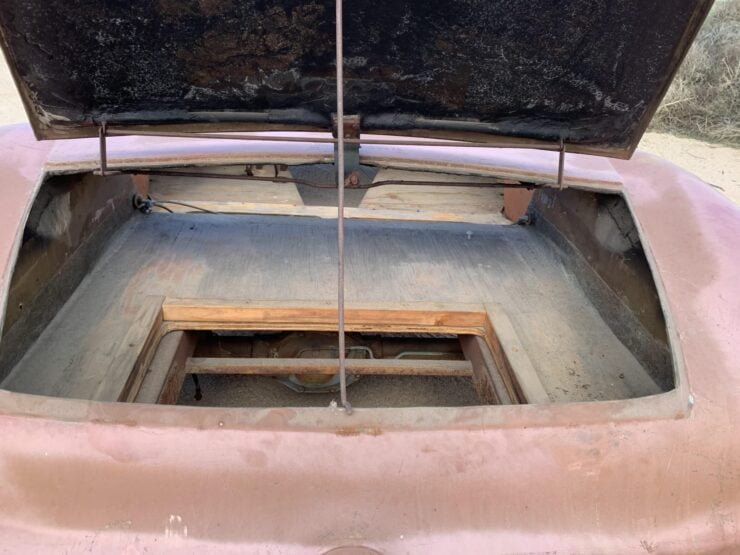
Images courtesy of Bring a Trailer

